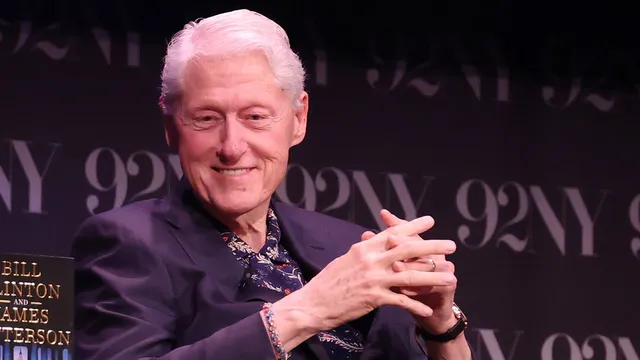
Zohran Mamdani wins Democratic primary for NYC mayor
2025-06-26 05:56- In the Democratic primary held on June 25, 2025, Zohran Mamdani led the vote count with 44%, ahead of Andrew Cuomo with 36%.
- Cuomo congratulated Mamdani but has not officially conceded, as the final results will depend on ranked-choice voting procedures.
- Mamdani's win reflects a shift towards progressive candidates in the Democratic Party, energizing younger voters and challenging established norms.
Express your sentiment!
Insights
In the Democratic primary for mayor of New York City held on June 25, 2025, Zohran Mamdani, a 33-year-old democratic socialist and state assembly member from Queens, emerged victorious over former Governor Andrew Cuomo and several other candidates. Mamdani's campaign resonated with progressive demands for change among younger voters, and he garnered significant support from prominent figures such as Alexandria Ocasio-Cortez and Bernie Sanders. While having not yet secured the required 50% of the vote due to ranked-choice voting procedures, Mamdani was declared the leading candidate after a strong showing in initial reporting. Cuomo acknowledged his defeat by calling Mamdani to congratulate him, declaring, "He won." Despite this, he has not officially conceded and is considering a run on an independent line. The usage of ranked-choice voting marked only the second instance of this system in New York City elections. The results reflect a broader political shift within the Democratic Party as voters increasingly lean towards progressive candidates over establishment figures. The primary showcased growing tensions between the party's traditional base and its more progressive wing, as younger voters seek representation that aligns with their values and priorities. Mamdani's victory is significant not only for its immediate impact but also as a potential signal for future elections, both locally and nationally, where progressive candidates could reshape the political landscape. His campaign focused on crucial issues such as affordability, public transportation, and social justice, appealing to voters who feel overlooked by established politicians. Mamdani made promises for a future where housing costs are sustainable and public services are more equitably available to all New Yorkers. As Mamdani prepares for a likely match-up against current Mayor Eric Adams, who has opted to run as an independent after not participating in the Democratic primary, his campaign represents a historical moment that could redefine electoral politics in New York City. Should he succeed further in his candidacy, Mamdani's administration might offer a blueprint for progressive governance that addresses the concerns of a broader range of constituents, particularly the city's marginalized communities. This election cycle could very well mark the beginning of a new chapter for the Democratic Party and its approach to local governance.
Contexts
The influence of progressive candidates on the Democratic Party has become increasingly significant in recent years, as they seek to reshape the party's policies and identity to align with more liberal and grassroots ideals. Progressive candidates, often inspired by the movements for social justice, climate action, and economic reform, have brought attention to issues that traditional Democratic leadership may have previously sidelined. This shift can be attributed to the growing support among younger voters and rising grassroots activism, which have emphasized the need for a platform that addresses wealth inequality, healthcare access, and systemic racism. As these candidates successfully mobilize their constituencies, they are challenging the centrist orientations of the Democratic Party, compelling it to adapt and evolve to meet the demands of its base. The impact of progressive candidates is evident in recent electoral results, where individuals such as Bernie Sanders and Alexandria Ocasio-Cortez have successfully campaigned on platforms that prioritize policy reform over establishment tactics. The success of these candidates has encouraged others to adopt similarly progressive stances, effectively shifting the Overton Window—the range of acceptable political discourse—within the Democratic Party. This has led to a notable transformation in how the party engages with issues like universal healthcare, climate change initiatives, and comprehensive immigration reform. By centering the conversation on disparate economic and social inequalities, progressive candidates have reframed the party’s narrative to encompass a more inclusive vision of governance. Moreover, the Democratic Party’s leadership has become increasingly aware of the importance of this progressive wave, recognizing that to maintain relevance and connection with voters, particularly younger demographics, it must respond to these calls for change. Alternative approaches, such as incorporating more progressive voices into party leadership and redefining mainstream Democratic policies to reflect progressive values, are being debated more actively than in previous election cycles. This has been exemplified by shifts in legislative priorities and the embracing of initiatives that once seemed too radical for mainstream acceptance, such as the Green New Deal and Medicare for All. The progressive movement has not only influenced candidate selection but has also driven a broader policy re-evaluation. In conclusion, the progressive candidates' influence on the Democratic Party represents a fundamental shift in American politics characterized by a push toward a more equitable and just society. As the Democratic Party grapples with internal divisions between establishment and progressive factions, the future trajectory of the party will likely be shaped by the degree to which it accommodates progressive ideals. Continued activism from grassroots organizations and voters who demand accountability and change will further influence the party’s platform, ensuring that progressive values remain central to Democratic ideology and electoral strategy in the years to come. As this dynamic evolves, the very identity of the party will likely continue to transform, potentially leading to a realignment in the political landscape.